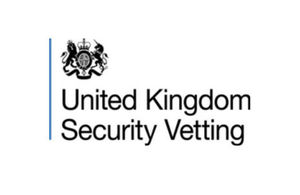Creative industry reliefs triumph at the Oscars®
World War I epic ‘1917’ triumphed on Sunday 9 February at the Academy Awards®. From cinematography to sound, films made in the UK and supported by the government’s creative sector reliefs were top of the list at the film world’s most prestigious awards ceremony.
According to British Film Institute (BFI) figures, 2019 saw the highest-ever spend on film and high-end TV production in the UK at more than £3.6 billion. Since 2007, when the current creative tax reliefs for films started, more than 5,000 claimants have benefitted.
These highly-skilled and innovative industries support growth across the UK: BFI research has shown that every £1 given in tax relief in the UK generates more than £7 in return for the UK economy.
Film and high-end TV tax reliefs are just 2 of the 8 different kinds of creative reliefs that the government offers to productions that are formally certified as British, funding everything from orchestras to museums. HMRC closely monitors creative industry tax reliefs through a specialist team to ensure they are operating correctly and that claim rules are properly adhered to.
As well as film, animation and high-end TV reliefs, the government offers creative tax reliefs that could benefit certain children’s television programmes, video games, theatrical productions, orchestral concerts, or museum or gallery exhibitions.
Pippa Harris, producer of the 3-time Oscar®-winner ‘1917’, which benefitted from creative reliefs, said:
The UK film and high-end TV tax reliefs have been absolutely crucial [both] in terms of supporting the UK production industry… On ‘1917’ alone, we were able to give employment to over 1,200 crew and more than 1,000 cast, stunt performers and supporting artists.
As well as the direct employment a major film creates, there is also a large economic benefit for the regions where shooting takes place. In the case of ‘1917’, we shot across the UK in 12 separate locations, from Glasgow down to Salisbury Plain.
It’s not just live-action movies that have benefitted from creative industry tax reliefs: animation specialists such as Oscar®-winning studio Aardman, known for ‘Wallace & Gromit’ and ‘Shaun the Sheep’, have also taken advantage of film and animation tax reliefs.
Kerry Lock, Finance Director of Aardman, said:
These reliefs are often a key part of financing, and some projects simply would not have been produced had they not been available. This helps us to continue to produce in the UK and develop and nurture talent.
Jesse Norman, Financial Secretary to the Treasury, said:
Like the rest of this year’s awards season, Sunday’s Academy Awards® highlighted the amazing talent of the UK film industry.
Creative sector tax reliefs have supported these internationally-acclaimed productions, and ensured that the UK remains a world leader in supporting creativity and innovation in the film industry.
In 2017, our creative industries made a record contribution of more than £100 billion to the UK economy. They play a key role in ensuring that it, and the UK arts scene in general, remain dynamic, diversified and daring.
